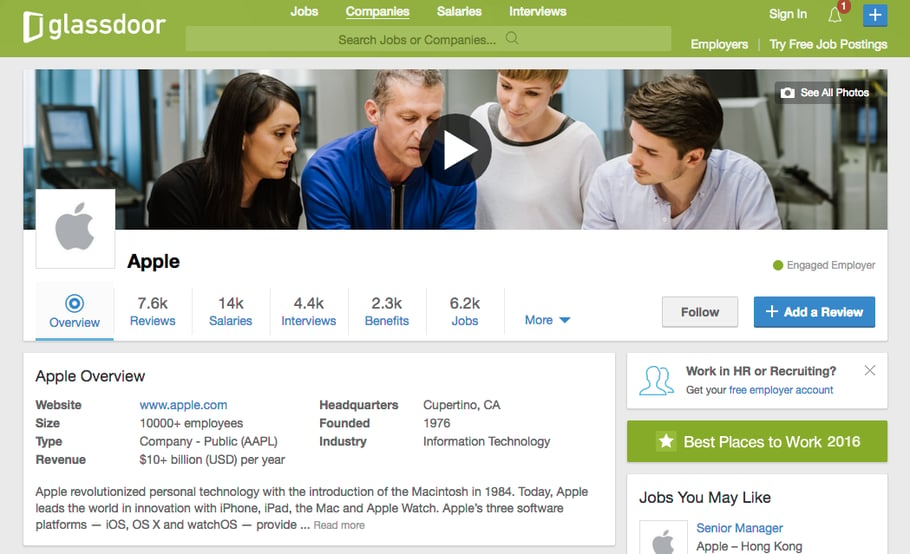This isn't an article about dry technical comparisons or endless feature lists. I'm tired of that type of content that makes you feel like all tools are the same and that choosing one is just a personal preference. The truth? Choosing your business management platform isn't a simple decision, and if you're struggling with Zoho right now, you're not alone and your problem isn't "not understanding the tool" as some might make you believe.
Let me tell you something clear: Zoho built a massive system of tools over the years, that's true. But the problem isn't the number of tools. The problem is that these tools are built as separate islands trying to communicate with each other instead of being one integrated system from the ground up.
Why Do Most Companies Fail with Zoho?
The reason is simple: You didn't buy "a tool," you bought dozens of different tools under one name. Each tool has a different interface, different logic, and different way of thinking. And then they tell you "integrate them" as if it's easy.
Imagine you're a sales manager. You open Zoho CRM in the morning to check your deals. The interface is cluttered, complicated you feel like you need a training course every time you want to do something new. Then you go to Zoho Campaigns to send a marketing email, and you find yourself in a completely different world. Different interface, different workflow, and the worst part? The data isn't synced properly between them.
After a year of struggle, you discover your bill has tripled because now you need Zoho Desk for support, Zoho Analytics for reports, and Zoho Projects for project management. Three separate subscriptions, three separate struggles, three separate headaches.
The Core Difference: Built Platform vs. Bundled Tools
And here comes HubSpot.
The difference between HubSpot and Zoho isn't about features or price. It's about philosophy. HubSpot was designed from day one as one integrated platform. Everything talks to everything because they're built together, not glued together afterward.
Let me explain with a real example.
In Zoho: A prospect comes from an ad, fills out a form in Zoho Forms, you need to manually connect it (or with complex APIs) to Zoho CRM, then you need to add them to a list in Zoho Campaigns, then if they become a customer and open a support ticket in Zoho Desk, the support agent doesn't see their complete history unless you've set up complex integrations.
In HubSpot: The same customer comes from the ad, fills out a form, automatically becomes a contact in CRM, automatically enters a marketing workflow, automatically when they open a ticket your support agent sees their complete history (the ads they saw, emails they opened, calls that happened with them, everything) on one screen.
See the difference?
Let Me Tell You About Each Tool in Detail
Customer Management System: Zoho CRM vs. HubSpot CRM
Zoho CRM remained for years the favorite choice for small businesses. Why? Because it's cheap. But over time, you discover that cheap becomes expensive.
The interface? It's like they put every possible feature on one screen. Buttons on top of buttons, menus within menus. Your new employee needs two weeks of training to understand where to click.
As for HubSpot CRM, you open it for the first time and feel like you've known it forever. Clean interface, logical, intuitive. Your new employee starts working from day one. And this isn't empty talk try it yourself. The free version of HubSpot gives you unlimited users and unlimited contacts. Free. Really, not a marketing trick.
And more importantly? Workflows. In Zoho, you need to be almost a programmer to create simple automation. In HubSpot, everything is visual drag and drop, you see exactly what happens and when.
Reports are the same story. Zoho gives you complex reports that need interpretation. HubSpot gives you beautiful dashboards you understand with one glance.
Email Marketing: Zoho Campaigns vs. HubSpot Marketing Hub
If you're a marketer using Zoho Campaigns, I deeply sympathize with you. Personalization in emails? A struggle. Integration with CRM? Not smooth. Templates? Old and need a lot of modification to look good on mobile.
HubSpot Marketing Hub solves all these problems. Templates are ready, modern, and mobile-responsive from the start. Personalization? Pull data from CRM easily. A/B testing? Built-in and simple. Segmentation? Dynamic and updates itself based on customer behavior. But it's bigger than emails. Marketing Hub brings everything together in one place: landing pages, blog, social media management, ads, SEO. Everything you need for marketing in one platform.
In Zoho? You need Zoho Sites for the website, Zoho Social for social media, and Zoho Campaigns for emails. Three separate tools, three separate subscriptions, three separate struggles.
Customer Service: Zoho Desk vs. HubSpot Service Hub
Zoho Desk does its job manages tickets reasonably well. But the problem is it works in complete isolation from the rest of your company. The support agent opens a ticket, sees the problem, but doesn't know: Is this customer new or existing? What products did they buy? What marketing emails did they receive? Are there open sales deals with them?
All this information exists, but in other systems. And your poor employee needs to open five screens to understand the complete picture.
HubSpot Service Hub lets you see the complete picture in one place. The ticket is automatically linked to the customer record in CRM, to sales deals, to marketing interactions. The support agent sees the whole story and can help better.
The knowledge base integrates with your website and carries the same visual identity. Customer satisfaction surveys connect directly to customer records so you can analyze and improve.
And most importantly: the support team doesn't work on an isolated island—they're part of the complete ecosystem.
Reports and Analytics: Zoho Analytics vs. HubSpot Operations Hub
Zoho Analytics is a powerful tool, no doubt. But the problem is you need to pull data from twenty different sources to create one useful report.
And every time you need a new report, the same struggle. Pull data, merge it, clean it, analyze it. Hours of work for one report.
HubSpot is radically different because all your data is already in one place. Reports pull from CRM, marketing, sales, and service simultaneously. Dashboards update in real-time. You don't need manual syncing or exporting and importing files.
And if you have external systems (like ERP or inventory systems), Operations Hub syncs them directly with HubSpot automatically. Automation keeps your database clean without constant manual intervention. And attribution reports show you exactly which campaigns brought you customers and what the real ROI is.
Project Management: Zoho Projects vs. HubSpot Projects
Zoho Projects is a standalone project management tool. And that's exactly the problem it's standalone.
HubSpot Projects (which is part of Service Hub) is integrated directly into the CRM system. Meaning projects are linked to deals, companies, customers. Time tracking is linked to tickets and project tasks. Customers can see their project progress through the client portal without leaving the HubSpot system.
This is especially useful for agencies and service companies that need clear connections between sales, execution, and support. And if you need a more powerful project management tool, HubSpot integrates excellently with tools like Asana, Monday.com, and ClickUp.
Accounting: Zoho Books vs. Accounting Integrations
Zoho tried to be everything, even an accounting system. The result? Zoho Books is a mediocre accounting tool.
HubSpot is smarter than that. They didn't try to create an accounting system. Instead, they made deep integrations with the best existing accounting systems: QuickBooks, Xero, and others.
Data syncs automatically in both directions. Invoices, payments, financial data all connected with CRM. You use the best accounting tool on the market, and at the same time, you have one unified source for customer data.
HubSpot's Real Advantage: Everything Built Together
Here's a quick guide on what sets HubSpot apart from Zoho's ecosystem by Laurent Ross COO & Co-owner at Oxygen.
Everything in HubSpot works together because it was designed that way from the start. You don't need to connect disparate products with APIs and claim the ecosystem is integrated.
And this is exactly what makes a difference in daily practice:
- Customer fills marketing form → automatically becomes sales deal → automatically starts sales email sequence
- Support ticket opens → automatically affects lead scoring → automatically changes marketing campaign targeting
- Sales activity happens → automatically sets service team priorities → automatically affects customer health scores
- Every customer interaction → appears on one unified timeline
All reports → cover complete customer lifecycle without manual data processing
This isn't science fiction this is the daily reality for HubSpot users.
Is HubSpot Right for Your Business?
The right question isn't "Is HubSpot better than Zoho?" The right question is "Are you ready to experience a system built right from the ground up?"
HubSpot suits you if you:
- Value simplicity: Your team can start working from day one, not after two months of training.
Think about growth: The platform grows with you from startup to global enterprise without needing to change systems. - Hate complexity: Everything is naturally connected—you don't need middleware or programmers to integrate systems.
- Need support: Excellent documentation, free training (HubSpot Academy), and customer service that actually helps.
- Love community: A huge ecosystem of partners, agencies, and user groups.
HubSpot is especially suitable for: - B2B companies with moderate to complex sales cycles
- Marketing agencies managing campaigns for multiple clients
- Service companies needing tight integration between CRM and support
- Companies tired of trying to connect disparate tools together
When to Consider Other Alternatives?
HubSpot isn't the perfect solution for everyone. Consider alternatives if:
- You need extremely advanced customization (in this case, Salesforce might be more suitable)
- You're in a highly specialized field with unique requirements
- Budget is very limited (the complete HubSpot suite can be expensive)
- You primarily need an accounting system (get a specialized accounting system)
Moving from Zoho to HubSpot
The good news: Migration is easier than you think. HubSpot provides data import tools for contacts, companies, deals, and tickets. Most companies complete their migration in a few weeks.
Migration Tips:
- Start by cleaning your data in Zoho before transferring it. Bad data stays bad even if you move it to a better system.
-
Use HubSpot's free CRM to test and try before committing to paid packages.
-
Invest in learning. HubSpot Academy has excellent free courses that teach you everything.
-
If it's complicated, work with a HubSpot-certified partner agency. Worth the investment.
-
Migrate in phases. You don't need to move everything at once. Start with CRM, then marketing, then service. Step by step.
The Bottom Line
Zoho tried to be everything for everyone through separate products stuck together. HubSpot was built from the ground up as one integrated platform. The difference is clear in daily use.
The real question isn't "Can HubSpot replace Zoho?" The question is "Are you and your team ready to experience what work looks like when tools actually work together, not just on paper?"
 UAE/GCC
UAE/GCC International
International.jpg?width=800&name=4a%20(1).jpg)
.png?length=800&name=2%20(1).png)








